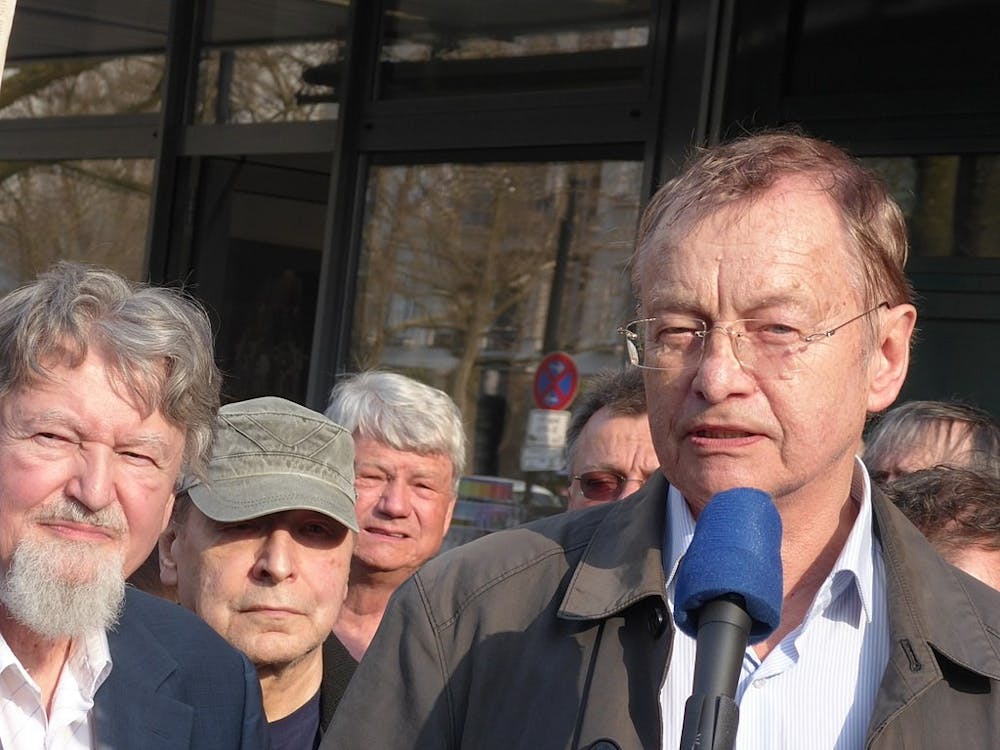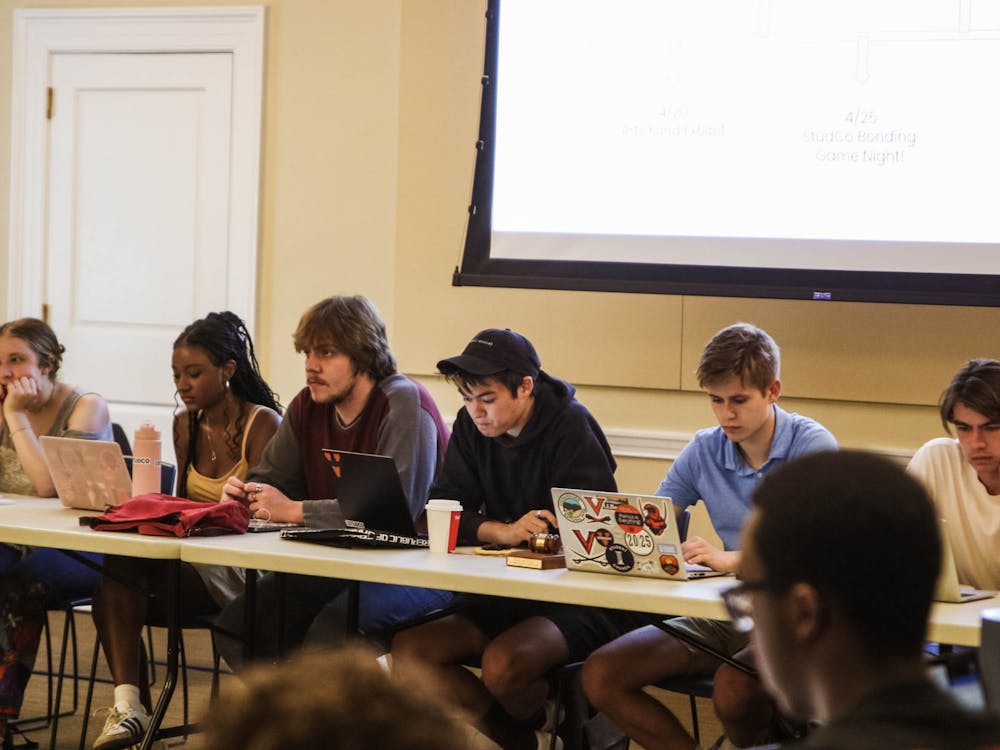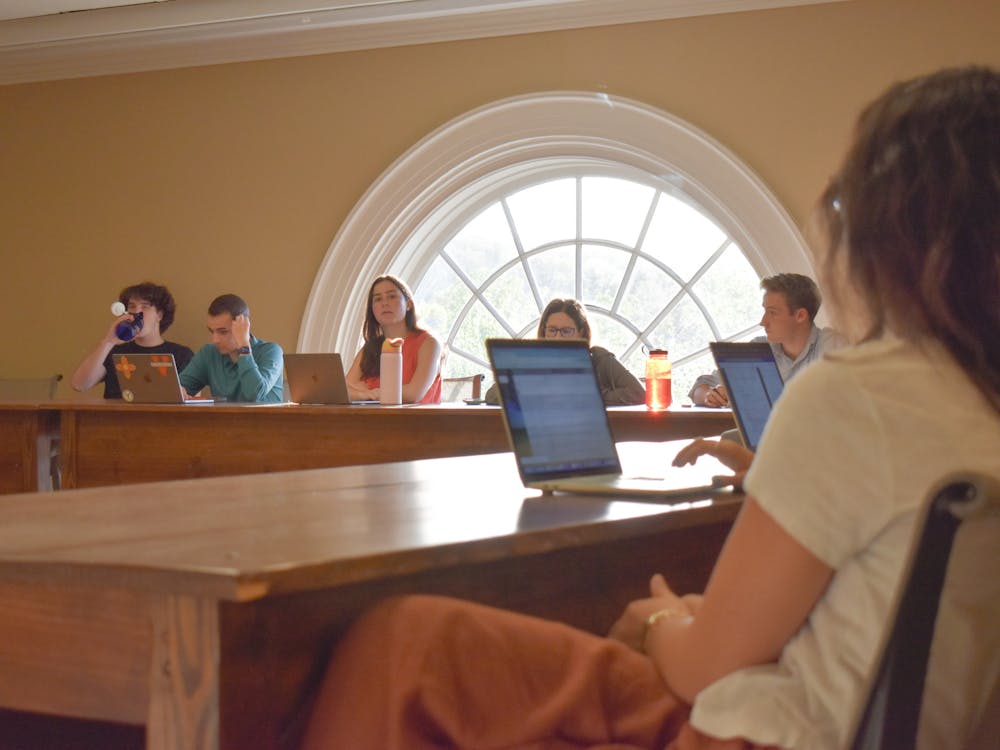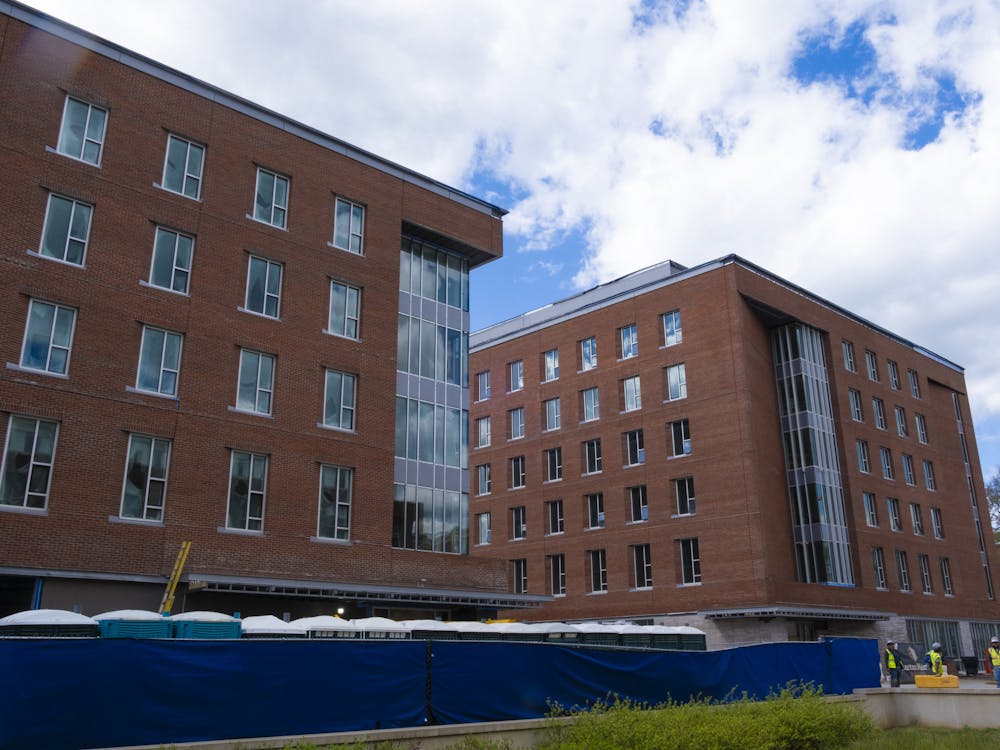German political scientist Hajo Funke, the German department’s Max Kade Distinguished Visiting Professor, is unable to enter the United States to teach at the University because the State Department has yet to issue him a visa. Funke is currently co-teaching two classes with Jeffrey Grossman, chair of the German department, on far-right populism from Berlin via videoconference.
Funke’s research focuses on political culture in modern Germany and far-right extremism. He is an active public intellectual, and was awarded the German Federal Cross of Merit in November for his work.
“I know Charlottesville from my last stay as a wonderful and pleasant place and even more so the colleagues and students,” Funke said.
His two courses — “Right-Wing Populism and the Far Right” and “Historical-Political Memory” — are dual-listed in both the German and Politics Department. Both are continuing with the help of Grossman and a graduate assistant who will be hired shortly.
Grossman, who has a longstanding professional relationship and friendship with Professor Funke, agreed to co-instruct Funke’s courses after his visa was delayed.
“It’s unfortunate — he's a brilliant and extremely knowledgeable man, very articulate, very friendly,” Grossman said. “It’s also very sad, I think, for students to be missing out on this.”
After receiving an official invitation from the University Nov. 11, Funke submitted all of his information and corresponding documents to the Consulate of the United States in Berlin to request an appointment. He submitted his passport Dec. 10 with a request for a J-1 Visa — Exchange Visitor, non-immigrant category that permits travel for scholars or professors who are engaging in cultural exchange programs. Funke received further questions from the Consulate that same day, but before he could submit his answers, his passport was returned with a letter stating that his visa would require “further administrative processing” that would take an additional three to six months.
To date, Funke has not received any further information or explanation from either the State Department or the Consulate.
“He hasn't been given any reason … we suspect it’s because he has a stamp from Iran in his passport,” Grossman said.
Funke had recently traveled to Iran to visit his wife’s family and for academic purposes.
However, he used the same passport — with the stamp from Iran — to apply for a J-1 Visa in 2018, which was quickly granted to him. He had a two-month tenure as a Research Fellow at the American Institute for Contemporary German Studies in Washington, D.C.
There, Funke’s research culminated in an article drawing comparisons between the right-wing extremist events that occurred in Charlottesville in August 2017, and Chemnitz, Germany in August 2018. Anti-immigrant backlash was sparked in Chemnitz when an Iraqi and a Syrian asylum seeker were accused of a deadly attack on a German man. Neo-nazi protests broke out in the streets, revealing far-right frustration towards the influx of immigrants that have entered Germany since its borders opened in 2015.
His article emphasizes the public and political repercussions of these events and highlights the threat these movements pose to democracy. The article is also highly critical of President Donald Trump’s response to the Unite the Right rally and its welcome reception by extremist leaders, calling it a “vindication.”
“The fact that the passport was sent back for three months without further explanation — regardless of further written statements from me — seems inconsistent to me and seems to be an expression of the growing arbitrariness of the institutions concerned,” Funke said. “In any case, this arouses suspicion about the fair treatment I expect.”
Grossman speculates that the cause of the visa delay “has to be” the Iranian stamp in his passport, but also raises the concern that it could be due to his research in far-right extremism.
“I tend to think that’s less plausible … but you never know … especially since they won’t tell us anything,” Grossman said.
University faculty from both the Provost’s Office and the Office of the Dean of Humanities have written letters to the Consulate and the State Department, but according to Grossman, have gotten no significant response.
In the past year since Funke last procured a J-1 Visa, there has been growing concern about visa delays for both international professors and students. A June 2019 New York Times article details the detrimental effects of these increasing delays, including job loss, financial hardship and withdrawal from classes.
“[Funke] wanted very much to come to Charlottesville,” Grossman said. “It’s unfortunate for educational purposes for our students at U.Va., but what it signifies, of course, is also very disturbing and troubling.”





